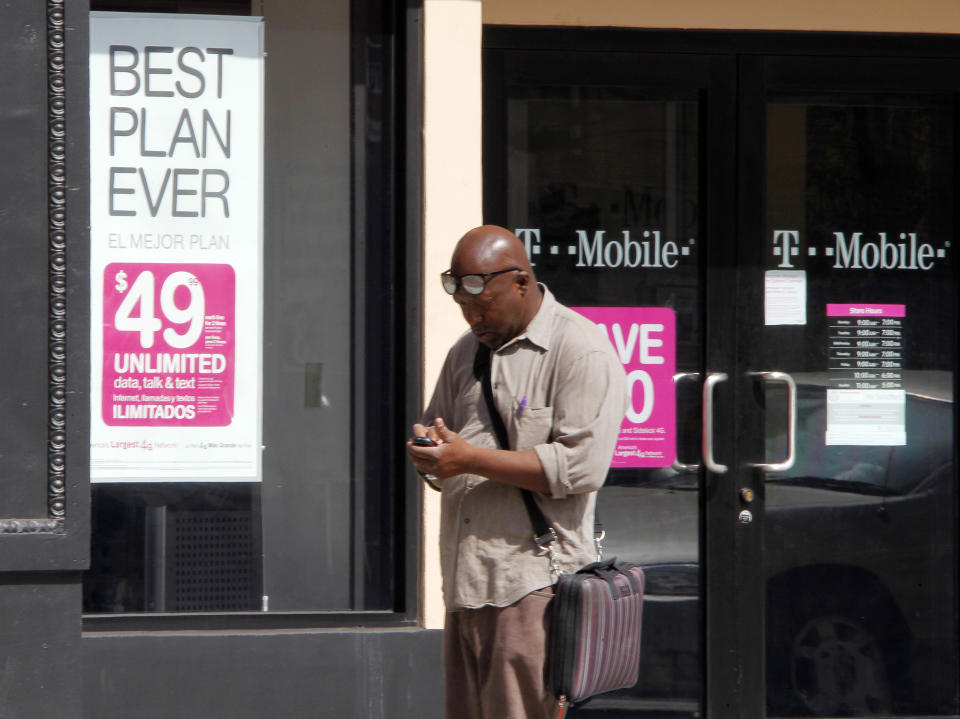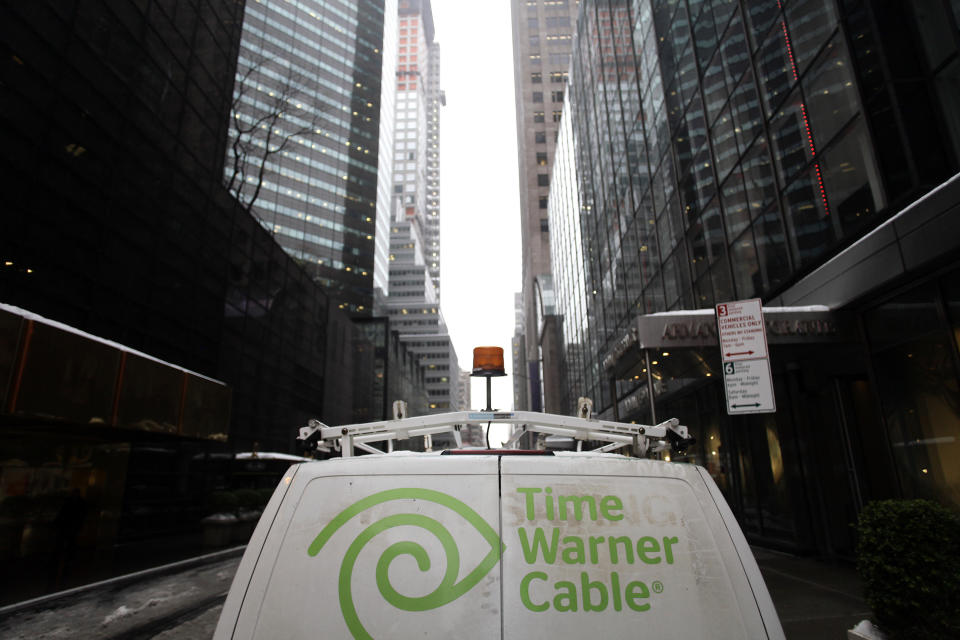These are America's biggest consumer complaints
From car problems to credit card debt, American consumer complaints range far and wide.
The Consumer Federation of America (CFA) conducts an annual survey of the biggest and most recurring complaints from cities, counties, and state consumer agencies across the U.S. from the previous year.
In all, 31 agencies from 20 states responded with consumers’ biggest annoyances, registering 193,810 complaints in 2019. And 30 agencies managed to recover or save about $300 million for consumers in 2019.
“Many complaints can be resolved through mediation, and some consumer agencies can also take formal legal action when that is warranted,” Susan Grant, director of consumer protection and privacy at the Consumer Federation of America, said in statement. “The public education that state and local consumer agencies provide is crucial for preventing fraud and abuse.”

Despite the report only covering 2019, New York City Department of Consumer Affairs’ Lorelai Salas noted that there has been a massive increase in calls in the last six months amid the coronavirus pandemic.
“It places the burden on us to be very proactive… to be out there on the street to give this information in person,” Salas said.

Top complaints
The top complaints were in auto sales and repairs, home improvement and construction work, and retail.
Since these items “involve significant financial losses and great inconvenience, consumers are more likely to seek help with them than for more minor issues,” the report noted.
#1 complaint: Auto-related problems
These complaints address “[m]isrepresentations in advertising or sales of new and used cars, deceptive financing practices, defective vehicles, faulty repairs, car leasing and rentals, towing disputes,” the report stated.
For instance, in Maryland, a consumer buying a used car was told by the car dealer that the vehicle was accident-free.

But after the sale, the buyer started to have problems with the vehicle and “brought it back several times for repairs, which failed to resolve them.” He eventually learned through another dealership that the vehicle had been in a big accident and the damage wasn’t properly repaired.
The seller initially was unwilling to do anything, but after the Maryland Attorney General’s office got involved, the dealer agreed to buy back the vehicle at the original price.
#2 complaint: Home improvement and construction issues
Complaints in this category generally refer to “[s]hoddy work, failure to start or complete the job, failure to have required licensing or registration,” the report stated.
This category is an especially big one, since the financial loss incurred by consumers for shabby work can not just affect their bank accounts but also their ability to live in their own homes.

For example, one complaint from an elderly man in Los Angeles stated that he hired a licensed contractor to tune his air-conditioning and heating unit which was $99.
The contractor pushed him to replace the entire unit for $14,400. He installed it “during a rainstorm” which caused significant damage to the man’s “rare books and other items.”
So, the elderly man pushed back and said it wasn’t fair that he had to pay full price because of the damage.

The contractor then agreed to the damage, and reduced the price owed to $6,4000.
But, in a last-minute twist, the “homeowner was astounded to later find that the contractor had recorded a mechanic’s lien in the amount of $15,000 against his property.”
He then went to the consumer agency in his county, who helped resolve the situation and the man ended up only paying an additional $2,000 as full settlement for the contract, and to remove the lien.
#3 complaint: Retail sales
The complaints stemming from retail sales vary greatly — from false advertising to defective merchandise, the list of consumer grievances can be aplenty.
But one experience, in particular, stands out in New York City.

The NYC Department of Consumer Affairs did a thorough investigation into T-Mobile in 2019 and sued after they found that T-Mobile had sold used phones as new, enrolled consumers in expensive plans without their consent, deceived people about its refund policies, overcharged customers, and failed to provide proper receipts.
T-Mobile, MetroPCS NY (it’s subsidiary), and more than 50 of its authorized dealers and corporate stores were found to have violated the city’s consumer protection law “thousands of times” and were asked to stop all illegal activity and forfeit the revenue made from these practices, and were required to notify all credit bureaus that these contracts they made were fraudulent.
#4 complaint: Landlord/tenant issues
Landlord issues revolve around them keeping living conditions safe and healthy, providing repairs and promised amenities, and issues surrounding deposits and rent.
One tenant complaint involving unsafe conditions, in particular, arose in Florida.
Last year, a woman complained that there were “armadillos living under the house she rented and carpenter ants in the walls,” the report stated. “There were also several ant colonies in the yard.”

Twice, her son was attacked by the ants while he was outside, “which resulted in anaphylactic shock, spending hours at the hospital, and days of steroid treatment,” the report detailed. “In addition, the armadillos had dug eight-inch holes all over the yard, creating a minefield.”
The landlord said he had fixed the ant problem — though the incident indicated otherwise — and then suggested the woman try and catch the armadillos herself.
The report noted that the agency is still working on the issue.
#5 complaint: Credit card and debt
Credit cards, student loans, mortgages — these are all common forms of debt that Americans take on.
Scammers often target these forms of debt, ranging from “billing and fee disputes” or being predatory and abusive in debt collection practices.
With regards to student loans, in particular, New York’s Salas added that amid the coronavirus pandemic, even though the federal government has enacted an interest-free payment pause, “what we hear is consumers getting calls from companies that say we can help you do this… we can get you into that program,” she said, even though it’s automatic and free.

And in 2019, the Ohio Attorney General’s office partnered with the Federal Trade Commission (FTC) to take legal action against Educare Centre Services and related individuals.
The company had solicited consumers through robocalls — offering to help them reduce their credit card interest rates and consolidate their debts if they paid a thousand or $2,000. When the company failed to deliver, the consumers asked for their money back, as part of a guarantee that Educare offered.
Educare didn’t honor that guarantee, so the state went after the company.
#6 complaint: Communications & professional services
When looking at telephone, internet, and professional services, there were a number of complaints regarding “[m]isleading offers, installation issues, service problems, billing disputes with telephone and internet services; Services: Misrepresentations, shoddy work, failure to have required licensing or registration, nonperformance,” the report noted.

For example in rural Arkansas, a couple who ran a home business was having problems with their internet, which was slow or just stopped working for days at a time.
Their internet service provider didn’t fix the problem, so they reached out to the state’s attorney general.
It turned out that the “interface was corroded and filled with ants.” The provider replaced the equipment and the couple received a $145.50 credit for their days without internet.
#7 complaint: Health products and services scams
Scams in this category may be familiar for many: “Misleading claims, unlicensed practitioners, failure to deliver, billing issues.”
But it also highlights how far some salespeople in this industry are willing to go.
Last year, an elderly Montana woman who “suffers from mental illness” went to Las Vegas while suffering from a manic episode.

She was walking in Planet Hollywood when she was “aggressively guided into a kiosk by a Flawless salesperson, who gave her a facial and convinced her to buy beauty products.”
Without her knowing, she was also signed up by the salesperson for an “automatic refill program” which resulted in $17,279 on credit card charges in two months.
Montana’s Office of Consumer Protection ended up helping her get a full refund.
#8 complaint: Complaints involving utilities
Complaints about gas, electric, water, and cable billing and services were also on the top 10 list.
For instance, in Maryland, when repairs were required to the gas lines at one apartment complex, the gas had to be shut off for a few days.

Those days turned into one-and-a-half months: Tenants in approximately 100 apartments were without heat and hot water, and couldn’t cook.
The Maryland Attorney General’s Office stepped in and got the tenants a refund for one month’s rent, pro-rated credit for the partial month, gift certificates for $595 to compensate for additional expenses they incurred, and $150 in credits for their utility payments.
#9 complaint: Fraud and household goods
Fraud is a word that can be all-encompassing and broad, but in the CFA’s case, it revolves around things like “[b]ogus sweepstakes and lotteries, work-at-home schemes, grant offers, fake check scams (which is something consumers need to watch out for in this COVID-era), imposter scams and other common frauds.”
Household goods refers to items like furniture and major appliances.
Together, fraud and household goods take ninth place in the top 10 list of consumer complaints.

One notable case occurred in San Francisco in 2019: a “Chinese Embassy Telephone Scam.”
The fraud victim received a pre-recorded call in Mandarin from someone impersonating the Chinese Embassy or Consulate. They’re asked to pay “immediate attention” and to call someone who’s allegedly an employee, who says there’s a package or message from the police from back in China that’s meant for them.
The scammer then asks for the victims’ personal info, including where their families are in China, and their immigration status. The scammer “offers” to “open” the package for them, which apparently would reveal that their families are involved in a “major fraud investigation in China and they are wanted for questioning in that regard.”

The victims are put into a three-way call with a fake detective who’s supposedly investigating them, and it’s then implied that they can actually pay for “bail” to get out of the situation.
The report noted that some of the victims fell prey: They “emptied their savings accounts, mortgaged their homes, or borrowed heavily to wire money to Hong Kong, from which it went into several accounts in mainland China.”
The AG’s office eventually was able to work with Hong Kong and Chinese authorities, track down the money, and return it to the victims in the San Francisco Bay Area.
#10 complaint: Scams involving internet sales
Rounding out the top 10 list, internet sales-related scams also plagued many Americans in 2019.
These scams essentially revolve around deceptive practices or misrepresentations, or simply the failure to deliver online purchases.

In Los Angeles, puppies were involved in some of these scams.
In 2019, L.A.’s Department of Consumer and Business Affairs received 49 complaints against an individual who put out ads for puppies on sale on various websites for $350 to $1,400.
But those who bought the puppies said that within days of arrival, “the puppies were extremely ill immediately or within days of arrival, requiring expensive veterinary treatment, and in many cases, the puppies died.”

Even when the consumer told the seller that the puppy died and was sent a replacement puppy, that puppy also died.
The agency got wind of this scam, investigated the issue, and ended up arresting the seller on felony charges of animal cruelty and theft. The case is currently being prosecuted, the report noted.
New scams
The report also revealed a new type of consumer problem.
In Ohio, Sheryl Harris at the Cuyahoga County Consumer Affairs reported that a caller pretending to be a sheriff or a deputy would call victims — with their own name — and say that the victim had to pay a fine for not attending to an important legal issue and there was an arrest warrant out for them, and they could only avoid arrest by paying a fine with a gift card.

These scammers were also staying on the phone with their victims as they dictated instructions for them to withdraw their money from bank accounts, buy gift cards, or send money transfers, “essentially holding their victims captive and ready to thwart any questions that might derail their schemes,” the report noted.
If you think you’ve been scammed, reach out to your county or state consumer agency.
—
Aarthi Swaminathan is a reporter for Yahoo Finance. Have you recently fallen prey to a COVID-19 scam, or know someone who has? If you’d like to share your story, Aarthi can be reached at aarthi@yahoofinance.com. Follow her on Twitter @aarthiswami.
Read more:
Follow Yahoo Finance on Twitter, Facebook, Instagram, Flipboard, SmartNews, LinkedIn, YouTube, and reddit.

 money
money 
